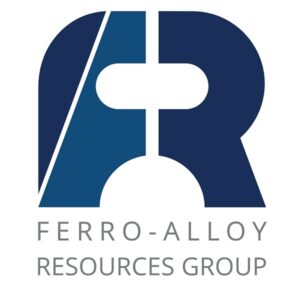Ferro-Alloy Resources Limited (LON:FAR), the vanadium producer and developer of the large Balasausqandiq vanadium deposit in Southern Kazakhstan has provided a trading update in respect of recent developments at the Company’s existing operations.
Trading Update
With all factory upgrades complete, the Company is focussed on increasing production and recovering more value from each tonne treated, as demonstrated by Q2 2023’s best production quarter to date (announced 17 July 2023), in terms of both volumes of concentrate treated and tonnes of metal recovered across all product lines.
As previously announced, the Company had entered into a number of contracts for the supply of vanadium-bearing concentrates to the Company’s existing processing operation. In order for there to be a constant pipeline of concentrate available to process, the Company is dependent on the suppliers of the concentrates fulfilling their contractual obligations, including timely delivery and quality of concentrate, and on the efficient operation of transport routes for delivery to Kazakhstan.
In the year to date, one of the Company’s major suppliers defaulted on its monthly supply commitments. Although deliveries from this supplier were still expected, albeit with a long-delayed start date, the Company responded by entering into further contracts with other suppliers, both long term and on a spot basis. The Company was previously satisfied that sufficient deliveries were scheduled to enable the Company to run at full operating capacity from mid-July 2023 onwards. However, further unanticipated supplier and transport delays have been experienced and have impacted output across the first two months of Q3 2023.
Concentrate supplies already in transit and ready for shipment are sufficient to allow the resumption of full operations from around the beginning of September. However, there is a possibility of further delays in the Southern, trans-Caspian Sea transport routes, caused by Ukraine-related disruption to other import routes and exacerbated by winter conditions in the Caspian Sea. There is, therefore, a possibility of some more limited shortfalls affecting production in Q4 2023. Subject to this, the Company expects the processing and output of the plant for Q4 2023 to be at or close to planned capacity.
Vanadium prices have remained depressed compared with prices earlier this year, attributed to the economic slow-down in China resulting in net exports of vanadium from China, although this is likely to be offset by significant demand for vanadium for energy storage batteries.
As a result, the Company anticipates that the concentrate supply delays experienced in Q3 2023, and continuing low vanadium prices, will have a material impact on the Company’s financial results for Q3 2023.
Feasibility study
The feasibility study into the Balasausqandiq deposit, the main value driver of the Company, is ongoing and reaching the final stages.
The previous Competent Person’s Report issued in 2018 showed a combined (Phases 1 and 2) Net Present Value of US$2 billion. Since then, as previously announced, the ore resource estimated for the first ore body (OB1) showed an increase of 23% in contained vanadium compared with the previous estimate and the ongoing investigation of the possibility to use a concentrate of the carbon content of the ore as carbon black has produced exciting results. Other results have been in line with previous expectations.
Ferro-Alloy Resources announced on 27 July 2023 the launch of an exempt offer bond programme on the Astana International Exchange. So far, a total of US$1.3m has been raised out of the first US$3m tranche of the programme. The US$1.3m, and all subsequent funds raised under the first tranche of the programme, will be used to fund the ongoing feasibility study to completion.
Outlook
The Company believes that both the production and financial results for 2023 are still likely to be significantly better than those achieved during 2022 notwithstanding the concentrate supply issues incurred to date.
The main activity for the remainder of 2023 will continue to be the completion of the Balasausqandiq feasibility study. Current schedules indicate that the study will be completed before the end of the year but indications of possible delays have been received from our consultants which might extend the delivery of the study into the first quarter of 2024.
Nick Bridgen, Ferro-Alloy Resources CEO, commented: “With all plant modifications now complete and operating efficiently, these supply chain issues are disappointing. That said, the progress in the feasibility study, the main driver of the Company’s value, is very encouraging and I look forward to updating shareholders on its results.”


